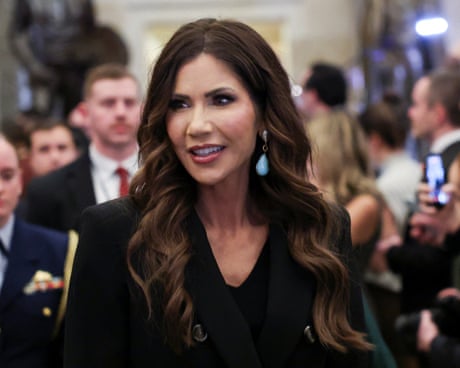
TORONTO — Since we live in instant-gratification times, let’s start with Mark Shapiro essentially confirming that the Toronto Blue Jays are hunting all the big names they’ve been linked to this winter, while also roughly sketching out the backup plan if that falls through.
“It’s been interesting to see our level of interest and our engagement be such dramatic news, but I think maybe that’s a reflection and a reinforcement to our fans that we’re taking the next step,” the team president and CEO said during a Zoom call with media Friday.
“(Hyun-Jin) Ryu is certainly one part of that and then for us to be engaged at the top end of every area of the market this year is encouraging. The only reaction I’ve got is that to place all of the emphasis on a successful off-season on a few names is probably not the right way to focus on it. We need to get better. I’m a hundred per cent confident we will get better. That could come in the form of four very good players, it can come in the form of two elite players. But we’re going to get better. And we have a lot of exciting conversations happening right now.”
Those conversations are ongoing, with a multitude of factors conspiring to slow the pace of action, the ongoing economic uncertainty across the sport created by COVID-19 and its impact on budget formulations front and centre in that regard.
The Blue Jays, while still unsure where they’ll be playing next year and how much revenue they’ll actually be able generate, aren’t in that camp. Shapiro said deliberations with team owner Rogers Communications Inc. (which also owns this website) have left the club with “a firm understanding of the support we need to execute our off-season plan.”
You can be certain that Shapiro, GM Ross Atkins and the rest of the front office wouldn’t be wasting time courting George Springer, D.J. LeMahieu, J.T. Realmuto and countless others if they didn’t have the authority to ante up. They’ve discussed four- and five-year deals with free agents, Shapiro “representing ownership at the table,” he said.
There’s little point in rehashing the same granular points made in recent weeks until dudes actually start signing, so let’s zoom out now and consider what substantial financial commitments really means for the franchise.
Right now, the Blue Jays are enjoying the initial grace period for rebuilding clubs when players are both inexpensive and under contractual control for an extended period, although that is beginning to end.
Of their core players, only Teoscar Hernandez is arbitration-eligible this winter, the Silver Slugger winner entering the salary-accelerator for the first time. But after 2021, Vladimir Guerrero Jr., Danny Jansen, Ryan Borucki, Rowdy Tellez and Trent Thornton all project to qualify.
Cavan Biggio might also reach the threshold as what’s known as a Super 2 player – the top 22 per cent of players in terms of service time between two and three years. If he doesn’t, he’ll be first-time eligible after 2022, along with Bo Bichette, Nate Pearson and Jordan Romano.
All those players are currently earning roughly $600,000, which helps make the roster spectacularly cost-effective. But once they get into arbitration, their salaries jump into seven figures and rise sharply, which means whatever financial commitments the Blue Jays put on the books this winter will impact longer-term decisions on those players down the road.
The dilemma currently faced by the Philadelphia Phillies offers an important cautionary tale.
A few years ago they were young and dynamic, and bolstered themselves with big-ticket adds like Bryce Harper, Zack Wheeler, Realmuto, Andrew McCutchen, Jake Arrieta and David Robertson. It hasn’t worked, their young base of talent was insufficient and now they have a top-heavy roster that’s so flawed they can’t easily outspend their deficiencies.
On Friday, the Phillies hired David Dombrowski (who interviewed with the Blue Jays prior to accepting the job in Boston the summer Shapiro was hired) as their new president of baseball operations to try and clean up the mess, which isn’t unlike the one that prompted their initial rebuild.
So, what’s important as the Blue Jays begin jumping their payroll isn’t only how much they can spend this year, but also what they can spend in 2022 and beyond when they have to both augment the team as needed and accommodate internal salary growth. (A farm system that continues to contribute young cost-effective talent is also vital.)
“Listen, if you’re not thinking about the impact of the moves within an off-season and the organic nature of the progress of your own young players, then you’re not responsibly running a major league franchise,” said Shapiro. “The way that we work with our ownership, that’s more our responsibility to manage that, however there already is an understanding of what our revenues were last year, what they’re likely to be next year, or at least the ranges of that. We’ve also seen incredible examples of what winning can do in this marketplace in ’15 and ’16 in a very recent context.
“There’s not any set number for us (for a 2022 payroll). There’s an understanding once we move forward, and that’s communicated, that we’re committing to a certain amount moving forward. The expectation is that we’re winning. And if we’re winning, we continue to grow that amount, but the revenues grow as well. Everyone’s been good about understanding that we’re we’re in abnormal, unusual times, that we’re not functioning in a normal environment yet, let’s ensure that we don’t deviate from the progress we’ve made and keep the plan moving forward.”
That vision is the ideal scenario, one that would prevent them from being like the Phillies, who want to re-sign Realmuto but aren’t sure if they can manage the commitment.
A worse-case scenario for the Blue Jays would be the back-end of contracts to, say, a Springer or Realmuto tie the front office’s hands and limit the opportunities to leverage the peak seasons of Guerrero, Bichette and Biggio before they become eligible for free agency.
The Chicago Cubs, for example, haven’t been able to maximize their competitive window since winning the 2016 World Series, hampered by underperforming big contracts. Now, they may be unable to leverage what could be their final season with pending free agents Javier Baez, Anthony Rizzo and Kris Bryant.
All of which underlines why the Blue Jays must, first and foremost, invest wisely because it’s difficult to undo substantial free-agent contracts, but also be assured that they’ll be able to maintain and escalate their financial support in the years to come.
And such an assurance — when the Blue Jays can’t be sure they’ll be able to sell any tickets or, should the team again qualify for the post-season, fully realize the benefits of another playoff run — is particularly essential.
“This is one example where we’re fortunate to be part of such a strong and deep ownership,” said Shapiro. “Everything you’re talking about is short term and nothing we’re doing is short-term focused. Everything we’re doing is long-term focus. We have always said the intent is to build a sustainable championship team. The points you make would be extremely valid if we were expecting to win for one year and 2021 was the only year we expect to win. We expect this to be the next step in a ramp up that allows us to be a championship-calibre club for multiple years.
“So, yes, there is a very good chance that we will not realize full revenue next year, some chance that we would not get a post-season benefit, but I’d like to think that’s unlikely,” he added. “I think by then we’ll be in an environment where we can realize the benefit of post-season. But again, the intent, the plan, the direction is long term. And I don’t think as we move into 2022 we’re going to be having these same conversations.”
If that turns out to be the case, the Blue Jays will instead be having more conversations like those of this winter, of chasing big names and plugging roster holes without the threat of financial landmines ahead.




